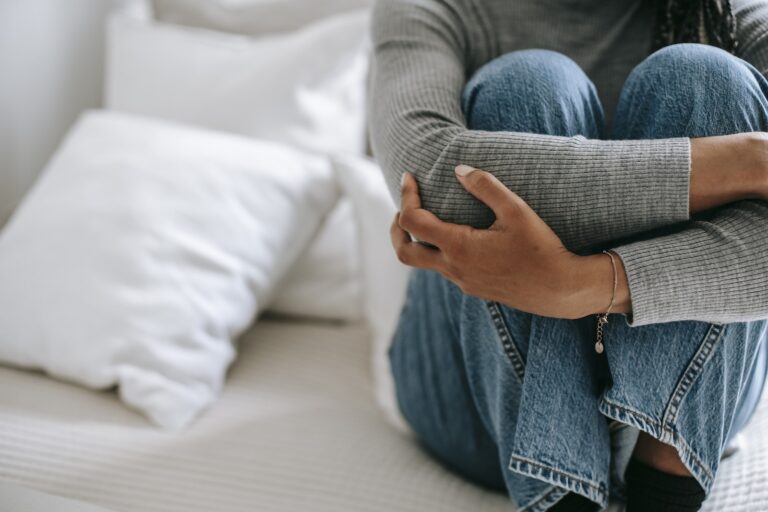It’s no secret that pain in the vulva and vagina can be very uncomfortable. Persistent vulvodynia (or pain in and around the vulva and vagina) can affect your relationship, reduce your sex drive, and even lead to depression.
It’s important to visit your doctor if you have pain in your vulva or vagina. The good news is, it can be easily treated.
Inadequate lubrication
Many females experience vaginal pain when there is insufficient lubrication. This can be caused by a number of things such as an STI, reduced sexual arousal, hormonal changes (such as menopause when the tissue that lines the vulva becomes thinner, impacting natural lubrication) or trauma to the area such as childbirth or a clitoral injury.
The lack of lubrication can also be caused by irritation such as the chemicals used in soaps, detergents and hygiene products. This can be exacerbated by sexual activity and can lead to pain, itching or burning sensations in the vulva.
Similarly, some women are born with abnormalities such as an imperforate hymen, which can make penetration painful or even impossible. In other cases, there are rare conditions such as Mayer-Rokitansky Kuster-Hauser syndrome that can cause a woman to be born without a vagina or incomplete reproductive organs. In these cases, sex can be very painful and should only be attempted with a medical professional.
Using an artificial lubricant, available in drugstores, can help with the lubrication issue. There are water based and glycerin free options that can be squirted into the vulva. It’s important to remember that foreplay and sexual stimulation can also provide a sufficient level of lubrication and pain relief during intercourse. However, if the problem persists, it’s recommended that you seek a specialist pain clinic to find out what treatment is right for you.
Bacteria
If you’re having pain down there that isn’t due to menstrual cramps, it could be an infection. Yeast infections, UTIs and some sexually transmitted infections (such as genital herpes, chlamydia and gonorrhea) can cause inflammation or irritation of the vulva and vaginal canal, which makes entry or penetration painful for both partners.
Yeast infections occur when there’s an overgrowth of the normal yeast that normally lives in your vulva. This can cause itching, pain and an abnormal discharge that may have a yeasty or fishy smell. Yeast infections are not contagious and usually clear up with over-the-counter medication.
Bacterial vaginosis, a condition that occurs when there’s an overgrowth of the bacteria that normally live in your vagina, can also cause itching and pain. It typically has a mild fishy odor and is not contagious. This condition is more common as women get older, and it can be caused by irritants such as scented tampons or pads, unwashed underwear or douches and certain soaps that contain chemical irritants.
Trichomoniasis, a sexually transmitted infection that’s caused by a parasite, can cause itching and pain in the vulva, labia and the skin that covers them. It’s often mistaken for a yeast infection and is usually accompanied by frothy or yellowish vaginal discharge. This infection can spread through contact with other people who have the parasite or by using the same tampons, pads or soaps.
Inflammation
Various infections can affect the vulva and pain can be caused by them. Candida, also known as thrush, causes inflammation and itching of the vulva with a cottage cheese-like discharge that may have a fishy or other foul odor. Bacterial vaginosis is another infection that causes a watery, white or grayish discharge with a similar odor. Infections can also be the result of a blocked gland (Bartholin’s cyst). These glands sit on either side of the vagina and help to lubricate it. If one or both of these glands become blocked, they can cause a stinging sensation in the vulva and a hard lump that feels like a pimple.
Other vulvar infections that can lead to pain include yeast infections, herpes and sexually transmitted infections like gonorrhea, chlamydia or trichomoniasis. Yeast infections can usually be treated with over-the-counter medications, while herpes and other STIs require prescription drugs.
Any type of pain in the vulva should not be ignored and it’s best to see a doctor for evaluation. If you are not sure what’s causing your pain, ask a doctor to look at the area with a cotton swab and touch different areas of the vulva. Then, they can suggest treatment options or ways to prevent the pain. Be sure to tell your doctor about any symptoms that may indicate a more serious health problem, like abnormal discharge, itching or bleeding.
Pelvic floor problems
Pelvic floor problems can cause the inside of your vagina to hurt. They can include leaking urine (urinary incontinence) and pain while having bowel movements or sex. These problems can occur in both women and men. They can also have different symptoms in each gender. For example, men can have a problem called pelvic muscle dysfunction that causes the rectum to move downward and can lead to having an erection during sex or leaking urine (fecal incontinence).
In women, tense pelvic muscles can make it painful to use tampons or have a physical exam with a speculum. This condition is called vulvar vestibulitis syndrome, or VVS. The pain can become constant or it may be worse during sexual intercourse. The pain can be sharp or burning and is usually not itching. VVS can affect all age groups of women, but it is most common in women ages 18 to 25 and after pregnancy.
In addition to feeling pelvic pain, some women have a condition called Bartholin cysts. These are painful because they’re caused by a blockage of fluid in the gland that makes the fluid that lubricates the vulva. These cysts can be found by a urologist, who can remove them. They can also prescribe medications to help reduce the pain or prevent recurrence. Women can strengthen their pelvic muscles with exercises like Kegels to help relieve the pain.
See Also:


